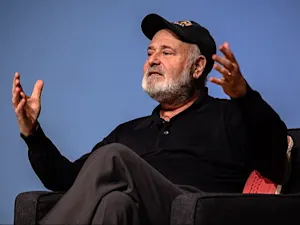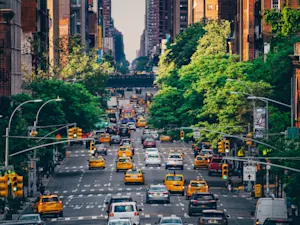
The History of 7 Nursery Rhymes
Sharing nursery rhymes is a delightful way to connect with children and grandchildren. These short, rhythmic songs are more than just simple tunes — they're gateways to language learning, imagination, and bonding time. Whether sung at bedtime, during playtime, or on a cozy afternoon together, nursery rhymes are timeless tools that can create cherished memories. But what exactly is a nursery rhyme, and where did these beloved verses come from?
A nursery rhyme is a traditional poem or song for young children. The term "nursery rhyme" first came into use in the late 18th century, though the rhymes themselves often date back much earlier. Many originated in England, where they were passed down orally before being written down. These rhymes typically feature simple language, catchy rhythms, and repetitive structures, making them easy for little ones to learn and remember.
Let's take a look at the origins of some of the most popular nursery rhymes, which have been sung to countless children across the generations.
1. 'Twinkle, Twinkle, Little Star'
 Origin: This lullaby comes from an 1806 poem titled "The Star" by English poet Jane Taylor. The melody is a French folk tune called "Ah! vous dirai-je, maman," dating back to the 18th century. The tune is also used in the "Alphabet Song," linking these songs across different aspects of childhood learning.
Origin: This lullaby comes from an 1806 poem titled "The Star" by English poet Jane Taylor. The melody is a French folk tune called "Ah! vous dirai-je, maman," dating back to the 18th century. The tune is also used in the "Alphabet Song," linking these songs across different aspects of childhood learning.
2. 'Mary Had a Little Lamb'
 Origin: Based on a true story from 19th-century Massachusetts, this rhyme recounts how a young girl named Mary Sawyer brought her pet lamb to school. The incident inspired a poem by John Roulstone, later completed by Sarah Josepha Hale, and became the nursery rhyme we know today.
Origin: Based on a true story from 19th-century Massachusetts, this rhyme recounts how a young girl named Mary Sawyer brought her pet lamb to school. The incident inspired a poem by John Roulstone, later completed by Sarah Josepha Hale, and became the nursery rhyme we know today.
3. 'The Itsy Bitsy Spider'
 Origin: While the exact origins of this rhyme are unclear, it is believed to have American roots and appeared in the early 20th century. Its catchy melody and accompanying hand movements have made it a favorite among children for generations.
Origin: While the exact origins of this rhyme are unclear, it is believed to have American roots and appeared in the early 20th century. Its catchy melody and accompanying hand movements have made it a favorite among children for generations.
4. 'Row, Row, Row Your Boat'
 Origin: Likely originating in the United States during the 19th century, this song first appeared in print in 1852. Often sung in rounds, it has become a popular group activity, teaching children rhythm and cooperation.
Origin: Likely originating in the United States during the 19th century, this song first appeared in print in 1852. Often sung in rounds, it has become a popular group activity, teaching children rhythm and cooperation.
5. 'Baa, Baa, Black Sheep'
 Origin: Dating back to 16th-century England, this rhyme refers to the wool trade and the taxes imposed on it. The simple, repetitive structure has helped it endure as a teaching tool and a favorite among children.
Origin: Dating back to 16th-century England, this rhyme refers to the wool trade and the taxes imposed on it. The simple, repetitive structure has helped it endure as a teaching tool and a favorite among children.
6. 'Jack and Jill'
 Origin: This rhyme, which first appeared in print in 1765 in London, tells the tale of two children fetching water, with a rhythm and narrative that have made it a classic. Some say that earlier inspiration for the rhyme originated in the village of Kilmersdon, in Somerset, England. There local legend says tragedy befell a young couple, Jack and Jill, who regularly climbed the hill.
Origin: This rhyme, which first appeared in print in 1765 in London, tells the tale of two children fetching water, with a rhythm and narrative that have made it a classic. Some say that earlier inspiration for the rhyme originated in the village of Kilmersdon, in Somerset, England. There local legend says tragedy befell a young couple, Jack and Jill, who regularly climbed the hill.
7. 'Old MacDonald Had a Farm'
 Origin: With roots in an old folk tune from England, this song became popular in the United States in the early 20th century. It's often used to teach children about animals and their sounds, making it both educational and entertaining.
Origin: With roots in an old folk tune from England, this song became popular in the United States in the early 20th century. It's often used to teach children about animals and their sounds, making it both educational and entertaining.
These nursery rhymes have been passed down through generations, providing a way for parents and grandparents to connect with the little ones in their lives. Sharing these songs can spark joy, learning, and a sense of continuity that links us all to the past while creating new memories for the future.
References: Twinkle, Twinkle, Little Star | 'Mary Had a Little Lamb' Is Based on a True Story | Behind the Meaning of the Classic Nursery Rhyme "Itsy Bitsy Spider" | Behind the Meaning of the Nursery Rhyme "Row, Row, Row Your Boat" | The dark side of nursery rhymes | More Nursery Rhymes | The Meaning Behind the Classic Nursery Rhyme "Old MacDonald Had a Farm" | What are the origins of ‘Jack and Jill’, and what do the lyrics mean?
























